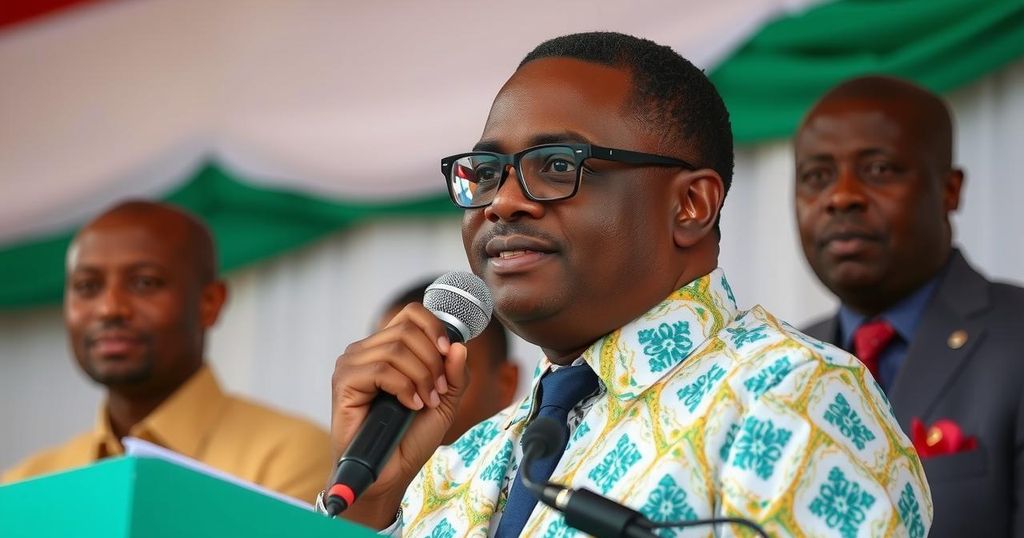Ghana’s Ruling Party Candidate Concedes Defeat in Presidential Election
Ghana’s ruling party candidate has conceded to the opposition rival in the recent presidential election, marking a pivotal moment in the country’s political sphere. The concession highlights a commitment to national unity and smooth transition, while citizens look forward to innovative governance under the new administration.
In a significant development in Ghana’s political landscape, the candidate from the ruling party has officially conceded defeat in the recent presidential election. This decision came after a closely contested race that saw the opposition emerge victorious. The ruling party candidate acknowledged the result, emphasizing the need for unity and cooperation moving forward, stating that the nation must prioritize its collective well-being above partisan divides.
The transition period commenced with hopes of a peaceful transfer of power, as the opposition candidate prepares to assume office. This historic moment not only reflects the democratic values upheld in Ghana but also heralds a potential shift in policy direction and governance approaches as anticipated by the electorate. The public awaits the new administration’s stance on various pressing national issues post-transition.
The recent presidential election in Ghana marks a critical moment in the country’s democratic evolution. With a reputation for political stability in West Africa, Ghana has consistently held multiparty elections since the early 1990s. The electoral process has often witnessed competitive races, engaging a politically aware populace. The current political climate has seen a robust civil society, a diverse media landscape, and heightened voter engagement, all contributing factors that made the recent election particularly noteworthy. As political dynamics shift due to election outcomes, analysts and citizens alike are keenly observing the implications for national policy and governance.
The concession by Ghana’s ruling party candidate indicates a pivotal moment in the nation’s political history, showcasing the resilience of its democratic practices. The emphasis on unity and respect for the electoral process reinforces the importance of stable governance while paving the way for new leadership. As the opposition prepares to lead, the electorate remains optimistic about the potential for progressive change in key national issues.
Original Source: abcnews.go.com




Post Comment